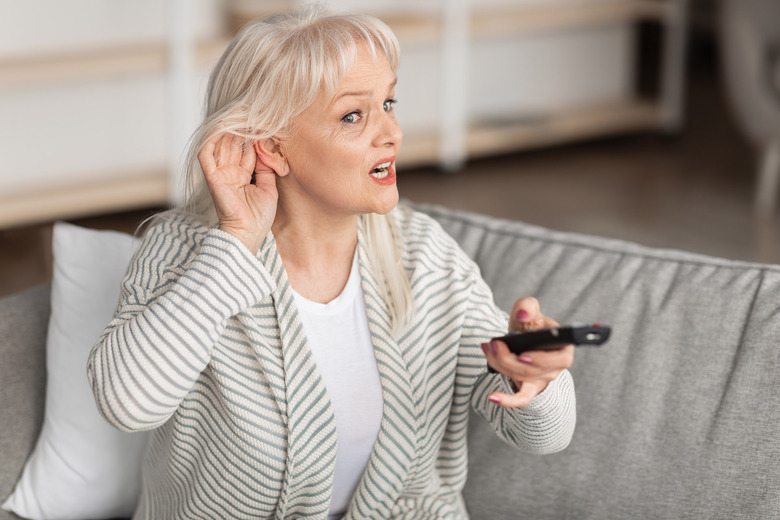Scientists Developed A Pill That Can Prevent Noise-Induced Hearing Loss
Exposure to loud noise is a risk factor for hearing loss. That's why it's great to see smart devices like the iPhone and AirPods notify you when the environmental sounds around you surpass a safe threshold. Also, wearing earphones like the AirPods when going to concerts can help reduce exposure to loud sounds.
We can't prevent all the loud noises around us to reduce the risk of hearing loss after exposure. Thankfully, there might be a novel treatment for avoiding hearing loss or reducing its effects in the form of a pill you swallow. There's nothing new about taking pills orally to treat various afflictions. The drug goes through your gut and the bloodstream to do its magic.
However, this new therapy isn't intended to reach the inner ear and fix whatever damage has occurred after exposure to loud noise. Instead, the superparamagnetic iron oxide nanoparticle assembly (SPIOCA) medicine that researchers from China developed will act locally inside the gut.
SPIOCA favors the good bacteria in the body and blocks the bad ones. This prevents additional damage to the ear, as the bad bacteria can't reach it as it normally would.
The researchers published their findings on their noise-induced hearing loss (NIHL) therapy in National Science Review (via New Atlas), explaining their findings.
They used an FDA-approved water-soluble cellulose derivate to cover SPIOCA and ensure the drug survives the trip to the gut. SPIOCA was also created to survive the acidic conditions of the stomach on its way to the gut, where it's needed to act.
They gave SPIOCA to mice orally before exposing them to white noise for two hours. The exposure to 110dB sound impacted the hair cells inside the inner ear. They are directly responsible for picking up sounds and transmitting them to the brain via electrical impulses sent to the nerves. The following clip explains how the ear gets sound traveling to the brain and will help you understand how NIHL occurs.
The researchers compared the hearing of mice that received SPIOCA treatment before exposure to noise and mice that didn't get the drug. They found that the SPIOCA-treated subjects had better preservation of hair cells and, therefore, better hearing levels than the untreated ones.
Loud sounds cause local inflammation. Reactive oxygen species (ROS) accumulate in hair cells, damaging and potentially killing them. Without these tiny cells, we can't pick up sounds and experience hearing loss.
The SPIOCA drug did not directly help prevent damage to the hair cells. However, exposure to loud sounds also impacted the gut microbiome, promoting inflammation at this level. The drug remained in the gut, where it started correcting the microbiome.
Specifically, SPIOCA reduced the amount of bad bacteria that resulted in the gut after exposure to the stressful event, the loud noise.
The SPIOCA drug managed to inhibit inrlammatory factors from the got from reaching the inner ear. Without the drug, the pro-inflammatory cytokines would increase and eventually reach the inner ear, where they might bypass the blood-labyrinth barrier (BLB) that should protect the hearing organ from these cells. They would generate additional ROS, which threaten the integrity of hair cells.
Therefore, the systemic inflammatory factors would further damage the hair cells on top of the damage resulting from the actual exposure to sound. But with SPIOCA's help, the gut's negative effect on hearing would be stopped.
The researchers also observed that the SPIOCA helped other gut bacteria, Bacteroides. They produce lipids called sphingolipids, which are important for cell structure and functioning.
Exposure to noise can also impact a sphingolipid receptor in hair cells called S1PR2. Extended inflammation can further harm the receptor, which can lead to the death of hair cells in the ear. Hearing loss would follow.
SPIOCA doesn't just reduce these hair cells' exposure to inflammatory factors; it also improves the function of S1PR2 receptors in the ear and reduces damage.
More research is needed before a SPIOCA drug can be created and administered to humans, as plenty of questions remain. The researchers examined the SPIOCA drug in a controlled environment, where the subjects received the gut drug before exposure to loud sounds.
In real life, we can't always control exposure to noise. It's unclear how the drug would work if taken after exposure or how long after exposure it would still be effective.
Moreover, it's unclear whether a drug like SPIOCA can have any benefit in subjects who already suffer from some sort of hearing impairment.
Still, this is certainly an incredible development. In addition to wearing AirPods at concerts, I'd certainly take SPIOCA before a show to ensure I give those tiny hair cells in the inner ear all the support they need to survive and keep talking to my brain.
